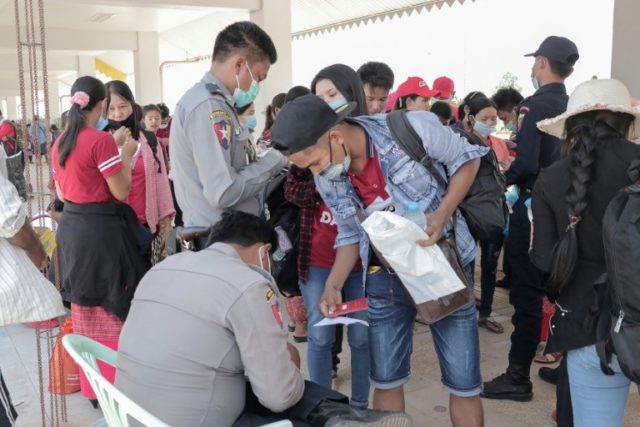In a recent meeting with the ministers of Kayin, Mon and Thaninaryi, State Counsellor Daw Aung San Suu Kyi gave assurances that returning migrants would find safety and acceptance. She urged people who have been working illegally in China, Thailand and Malaysia to make themselves known to authorities regardless of the manner of their return.
“All they need is to inform the authorities with confidence,” the Myanmar Times quoted the state counsellor as saying. “If not, it increases the risk of spreading the virus.”
Unskilled workers represent a dangerous vector for the COVID-19 pandemic. Many live in close-packed shantytowns or cramped company housing, and these communities are often difficult for medical professionals to test and monitor. When in March the government attempted to close land borders, official crossings were swarmed with prospective returnees. Many were forced to remain open as tens of thousands of migrant workers re-entered the country and returned to their homes, possibly carrying the virus with them. Meanwhile, in Yangon’s Insein Township, officials recently began conducting door-to-door sweeps, looking for anyone with signs of the disease.
On the other hand, the government cannot simply force workers to stay in their homes, as the country’s economic outlook largely depends on whether or not workers can work. The government’s myriad economic stimulus measures include steps to protect tens of thousands of workers who have been, or are at risk of being, laid off. Furthermore, manufacturing, warehousing and shipping were included in the government’s recently-released list of essential industries. This means that tens of thousands of workers in these industries will continue working, preserving Myanmar’s economy as well as, potentially, prolonging the outbreak.
Thus, the fate of Myanmar during the pandemic depends on the fate of its unskilled labor force, and the country must carefully balance both the health and wealth of its workers.


